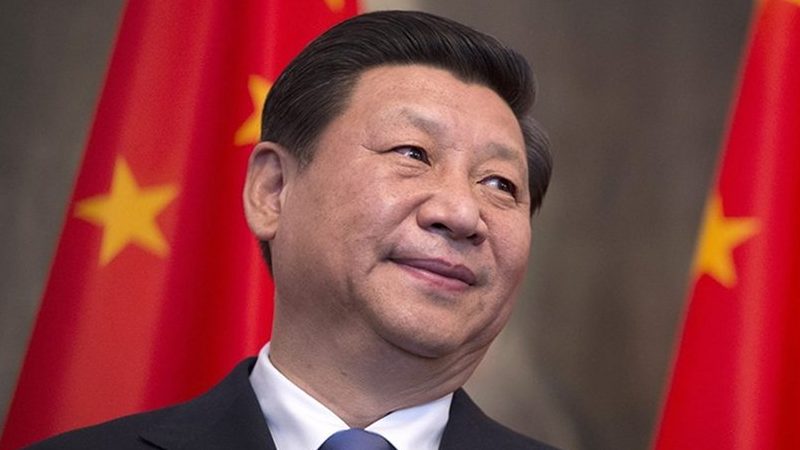- 536 Posts
- 108 Comments
https://feddit.org/u/petrescatraian@libranet.de
Seems all fine, right?
Pro-EU leader claims Moldova victory despite alleged Russian meddling
Moldova’s pro-EU President Maia Sandu has claimed a second term after a tense election run-off seen as a choice between Europe and Russia. With most votes counted Sandu had won 55%, and in a late-night speech she promised to be president for all Moldovans.
Her rival Alexandr Stoianoglo, who was backed by the pro-Russian Party of Socialists, had called for a closer relationship with Moscow.
During the day the president’s national security adviser said there had been “massive interference” from Russia in Moldova’s electoral process that had “high potential to distort the outcome”.
Russia had already denied meddling in the vote, which came a week after another key Eastern European election in Georgia, whose president said it had been a “Russian special operation”.

 0·5 days ago
0·5 days agoI didn’t miss the point, but this is a different topic. We need to provide housing, end homelessness and possibly the right to a bank account for everyone. These are different things.

 0·5 days ago
0·5 days agoAffordable housing and the threat by malicious actors to attack digital payment systems are two different things. Homelessness has to be addressed, of course, but we are dealing here with something else.

 0·8 days ago
0·8 days agoThis is maybe a devastating example why centralization and central planning is a bad and dehumanizing act for individuals in a society. There is a good documentary about China’s so-called “Ghost Children”. These are those who were born as younger siblings during China’s One Child policy.
The documentary was made in 2014. It shows how quick things can change, and how people suffer now and then due to bad politics.
It’s really worth your time.
China’s Ghost Children – (video, 36 min)
Second or third children born illegally during China’s One Child Policy - implemented between 1979 and 2015 to curb the country’s population growth by restricting many families to a single child - are banned from marrying, having children or simply boarding a train. Condemned to a non-life, these ghost children do not officially exist according to the Chinese state. ARTE Reportage goes in search of these ‘Haihaizi’, those children who should not have been born.

 0·8 days ago
0·8 days agoThis is maybe a devastating example why centralization and central planning is a bad and dehumanizing act for individuals in a society. There is a good documentary about China’s so-called “Ghost Children”. These are those who were born as younger siblings during China’s One Child policy.
The documentary was made in 2014. It shows how quick things can change, and how people suffer now and then due to bad politics.
It’s really worth your time.
China’s Ghost Children – (video, 36 min)
Second or third children born illegally during China’s One Child Policy - implemented between 1979 and 2015 to curb the country’s population growth by restricting many families to a single child - are banned from marrying, having children or simply boarding a train. Condemned to a non-life, these ghost children do not officially exist according to the Chinese state. ARTE Reportage goes in search of these ‘Haihaizi’, those children who should not have been born.

 0·9 days ago
0·9 days agoYes, I too find that irritating. Maybe what he means is that Microsoft was innovative in the very beginning of the company’s history, before PCs were part of everyone’s household. But Gates’ Microsoft soon started to pursue a very monopolistic policy. And it has been doing so to this day. (I can’t compare that to Carlos Slim’s conglomerate, though, due to a lack of knowledge about that.)

 0·9 days ago
0·9 days agoIncome equality is just one of many other factors to assess a just society as we know. But as many focus on China’s GDP growth in its recent history, here are just numbers:
Between 2014 and 2022, in China the share of the bottom-50% income group (pre-tax) in the national income fell from 14.4% to 13.7%. In the same period, the shares of the top-1% and top-10% income groups rose from 13.7% and 41.5% to 15.7% to 43.4%, respectively. In a nutshell: the Chinese rich got richer, the poor got poorer.
For Western-style democracies countries, the numbers are diverse:
In European democracies like Germany and especially Norway, top income groups lost while the bottom-50% gained, while in countries like Finland all three mentioned groups gained, suggesting that the ‘middle class’ paid the bill. In other countries like Sweden, Denmark, and the U.S., the numbers show gains for the top at the cost of the bottom half.
And in Australia, top income groups lost significantly more than the bottom-50% gained, suggesting the middle class benefited, while in countries like Canada and Japan there appear to be only slight or even no significant changes in the period between 2014-2022.
But as I said, we must also focus on other factors that makes a good society (the four freedoms come to my mind: freedom of speech and expression, freedom of worship, freedom from want, freedom from fear). Given the numbers and the fact that some in this thread cite China’s GDP and national wealth as a factor of societal success, it is clear that this argument does not hold, though.

 8·9 days ago
8·9 days agoIn a piece published in November 2022, Nobel Economist Daron Acemoglu argues that China’s economy is rotting from the head.
For a while, [China’s leader] Xi, his entourage, and even many outside experts believed that the economy could still flourish under conditions of tightening central control, censorship, indoctrination, and repression [after Xi secured an unprecedented third term (with no future term limits in sight), and stacked the all-powerful Politburo Standing Committee with loyal supporters]. Again, many looked to AI as an unprecedentedly powerful tool for monitoring and controlling society.
Yet there is mounting evidence to suggest that Xi and advisers misread the situation, and that China is poised to pay a hefty economic price for the regime’s intensifying control. Following sweeping regulatory crackdowns on Alibaba, Tencent, and others in 2021, Chinese companies are increasingly focused on remaining in the political authorities’ good graces, rather than on innovating.
The inefficiencies and other problems created by the politically motivated allocation of credit are also piling up, and state-led innovation is starting to reach its limits. Despite a large increase in government support since 2013, the quality of Chinese academic research is improving only slowly.
[…] The top-down control in Chinese academia is distorting the direction of research, too. Many faculty members are choosing their research areas to curry favor with heads of departments or deans, who have considerable power over their careers. As they shift their priorities, the evidence suggests that the overall quality of research is suffering.
Xi’s tightening grip over science and the economy means that these problems will intensify. And as is true in all autocracies, no independent experts or domestic media will speak up about the train wreck he has set in motion […]

 0·9 days ago
0·9 days agoIn a piece published in November 2022, Nobel Economist Daron Acemoglu argues that China’s economy is rotting from the head.
For a while, [China’s leader] Xi, his entourage, and even many outside experts believed that the economy could still flourish under conditions of tightening central control, censorship, indoctrination, and repression [after Xi secured an unprecedented third term (with no future term limits in sight), and stacked the all-powerful Politburo Standing Committee with loyal supporters]. Again, many looked to AI as an unprecedentedly powerful tool for monitoring and controlling society.
Yet there is mounting evidence to suggest that Xi and advisers misread the situation, and that China is poised to pay a hefty economic price for the regime’s intensifying control. Following sweeping regulatory crackdowns on Alibaba, Tencent, and others in 2021, Chinese companies are increasingly focused on remaining in the political authorities’ good graces, rather than on innovating.
The inefficiencies and other problems created by the politically motivated allocation of credit are also piling up, and state-led innovation is starting to reach its limits. Despite a large increase in government support since 2013, the quality of Chinese academic research is improving only slowly.
[…] The top-down control in Chinese academia is distorting the direction of research, too. Many faculty members are choosing their research areas to curry favor with heads of departments or deans, who have considerable power over their careers. As they shift their priorities, the evidence suggests that the overall quality of research is suffering.
Xi’s tightening grip over science and the economy means that these problems will intensify. And as is true in all autocracies, no independent experts or domestic media will speak up about the train wreck he has set in motion […]

 0·12 days ago
0·12 days agoWelcome to the club. I am banned there, too. 😜

 0·13 days ago
0·13 days agoPersecution of 10 Catholic bishops in China intensified after Vatican-China deal, report says
A new report sheds light on the repression faced by 10 Catholic bishops in China who have resisted the Chinese Communist Party’s attempt to exert control over religious matters since the 2018 China-Vatican agreement on the appointment of bishops.
The report, authored by Nina Shea for the Hudson Institute, documents the harrowing experiences of Vatican-approved bishops who have suffered detention without due process, surveillance, police investigations, and banishments from their dioceses for refusal to submit to the Chinese Patriotic Catholic Association (CPCA), a state-managed group controlled by the CCP’s United Front Work Department.
“This report shows that religious repression of the Catholic Church in China has intensified since the 2018 China-Vatican agreement on the appointment of bishops,” Shea said.
“Beijing targeted these 10 bishops after they opposed the Chinese Patriotic Catholic Association, which requires its members to pledge independence from the Holy See,” she added.

 0·13 days ago
0·13 days agoThe Reuters report refers to the September data (read my comment on the September data above), and this is practically always lower than the data in August and particularly in July. And the September 2024 data is higher than the Sep 2023 data. As I wrote in my comment, intra-year data fluctuates. The comparison you make doesn’t make sense, therefore.
Youth unemployment is rising in the long run, this is what the data shows.

 0·14 days ago
0·14 days agoThis is up to you, it is the official Chinese data.
A brief update: Official Chinese youth unemployment rate for September -just released- is now 17.6% (according to the new methodology that does not include university students). It appears to follow the expected development as youth jobless figures in China tend to fluctuate over the year while reaching their peak in the summer (July and August data), when a large number of graduates enter the job market. The September data is a significant increase compared to January as well as year-on-year.

 0·19 days ago
0·19 days agoWhich sources are reliable for China news in general?

 0·19 days ago
0·19 days agoIt really helps of you read before posting. And don’t forget to suggest sources you think are reliable.

 0·20 days ago
0·20 days agoWhere do you get your information on Tibet?
Here are some alternative sources:
Tibetan School Falls to China’s Legal Pressure (October 2024) – (Archived)
A 2010 cultural assimilation policy mandates that all schools in Tibet use Chinese as the primary language, starting from kindergarten. […] “The Chinese government is closing monasteries and Tibetan schools as part of a broader strategy to eradicate Tibetan language and culture.” […] Private schools are especially targeted in “patriotic education campaigns,” making language instruction harder to monitor. Eight of the remaining 16 private Tibetan schools have been ordered to close, while the rest face allegations and administrative pressure.
Tibet boarding schools: China accused of trying to silence language (March 2024)
Over recent years, the Chinese government has closed village schools - and private ones teaching Tibetan - and expanded the use of boarding schools. These have been in operation for many decades in a number of Chinese regions that are thinly populated - but in Tibetan areas, they appear to have become the main means of education. […] [Experts] say this kind of schooling creates psychological trauma for children who are forcibly separated from their families, who are pressured to send their children away. “The most challenging aspect of my life was missing my family,” said one Tibetan teenager, who attended a boarding school for several years, until she was 10.
China shows off a Tibetan boarding school that’s part of a system some see as forced assimilation (October 2023) – (Archived)
China has shuttered village schools across Tibet and replaced them with centralized boarding schools over the last dozen years. Many students come from remote farming villages and live at the schools. The practice is not limited to the region […] Activists estimate 1 million Tibetan children study at such boarding schools, though the number is difficult to confirm. They say the schools are part of a broader strategy to dilute Tibetan identity and assimilate Tibetans into the majority Chinese culture.
If you still don’t trust one of these sources, feel free to find others. It’s easy, they are all across the web.

 0·22 days ago
0·22 days agoAddition:
TikTok Has Pushed Chinese Propaganda Ads To Millions Across Europe – ( July 2024, updated September 2024)
According to TikTok’s newly public advertising library, ads from China’s largest state media outlets touting everything from China Covid lockdowns to tourism in the troubled Xinjiang region have been broadcast to millions of the platform’s European users.
TikTok Ads Paid for by Chinese Media Target European Users – (August 2023)
Chinese media sponsored over a thousand ads on TikTok targeting European audiences. Additionally, accounts that carefully obscure their connections to China may pose further risks in coordinated information manipulation campaigns.
This are just two examples, there is much more across the web.

 0·24 days ago
0·24 days agoI am not sure whether I understand your comment. Don’t you want opinionated articles to be flagged as ‘opinion’? I thought it’s a good idea as it is not a typical news article. Just let me know.














I assume you agree that they will continue to interfere, but, yes, for now there is reason to celebrate a bit :-)